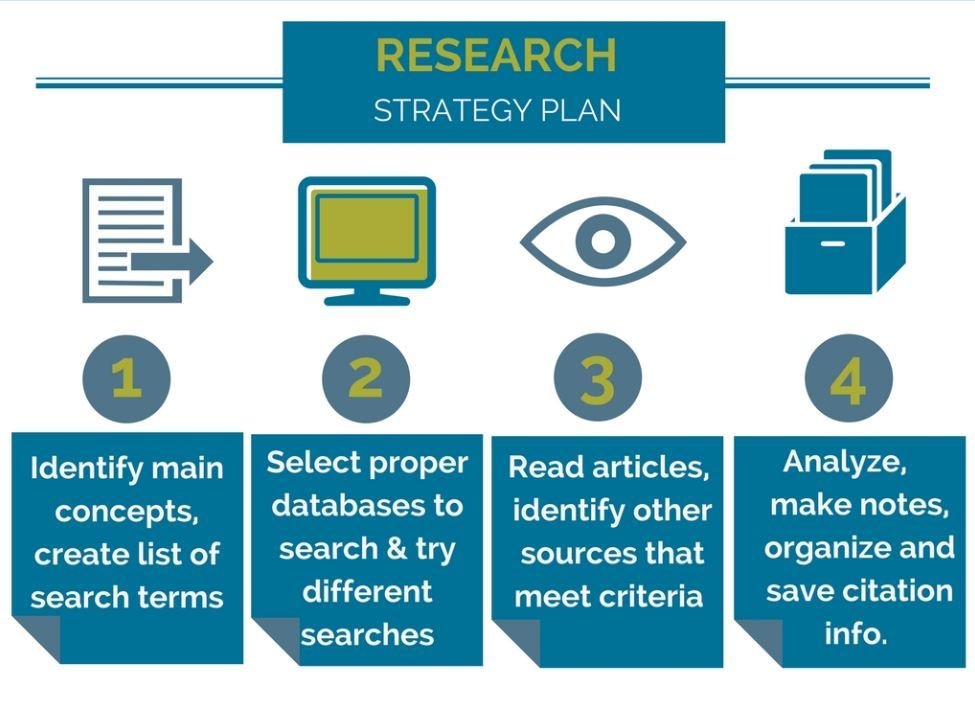
Identify Main Concepts of Your Research Topic
After deciding on your topic and setting up a research question or hypothesis. What are the main concepts or variables that you want to focus and what alternative words and health terminology can be used to describe them?
Main Concepts:
Diabetes management among youth population in school settings.
Example:
Diabetes - Youth - Schools
Research Tip: Keep a list of possible words to search & track what terms work and don't work.
Alternative Terms:
Diabetes Mellitus
Diabetes control
Diabetes care
Type 1 or 2
Adolescent
Teenagers
Teens
Young adults
Education settings
Educational institution
High School
School Policy
Select Databases to Search
Once you have a list of possible terms to search you need to decide where to search. It is recommended to search multiple databases (at least 3). One multidisciplinary database and two specialized databases (health, or social science, or psychological) depending on your topic.
Research Tip: Create accounts with databases to utilize additional features such as saving articles and remembering your search history.
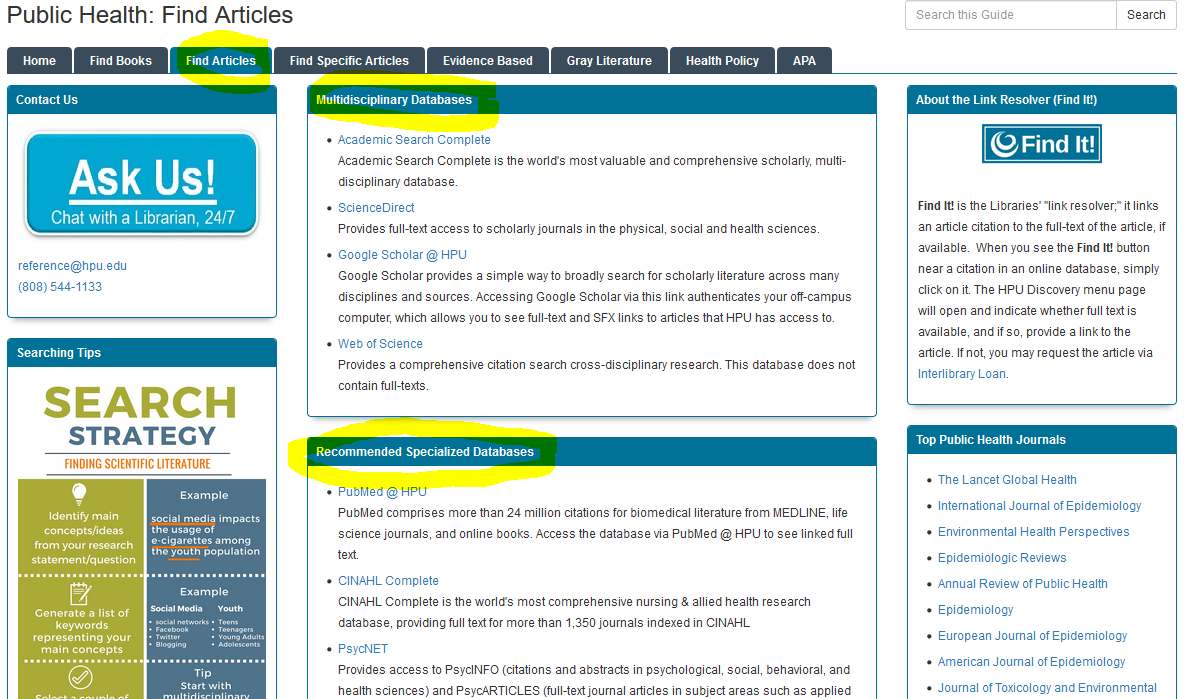
There is a list of recommended databases in the Public Health Guide. You can also contact me for recommendations based on your topic, scope and information need.
Select Databases to Search
When selecting a database, consider the types of material it indexes and the disciplines it covers. Multidisciplinary databases cover a larger amount of publications but specialized databases index more discipline focused publications.
Research Tip: Databases index journals but that does not guarantee that they provide access to the actual content. Look for "Find It" link to articles you want but do not see full-text options.
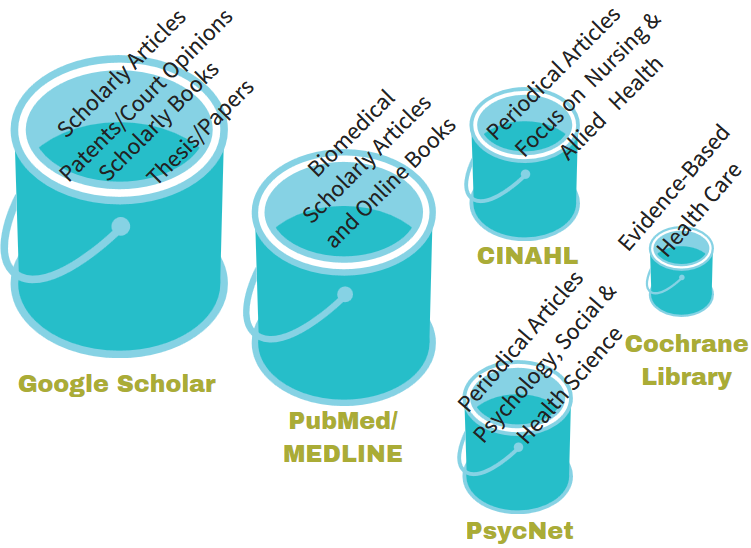
Searching in Databases
Searching in databases is not the same as searching in Google. One needs to try different search combinations and as you uncover information continue trying new searches. Databases use specific commands to connect and search your terms, the most common ones are....

Research Tip: Databases have a help link where they discuss search commands more extensively, each database has its own algorithm.
Searching in Databases
Start with a basic search combining 2 or 3 terms from your list then move to more advance search where you can combine synonyms and utilize limiters available to filter results.
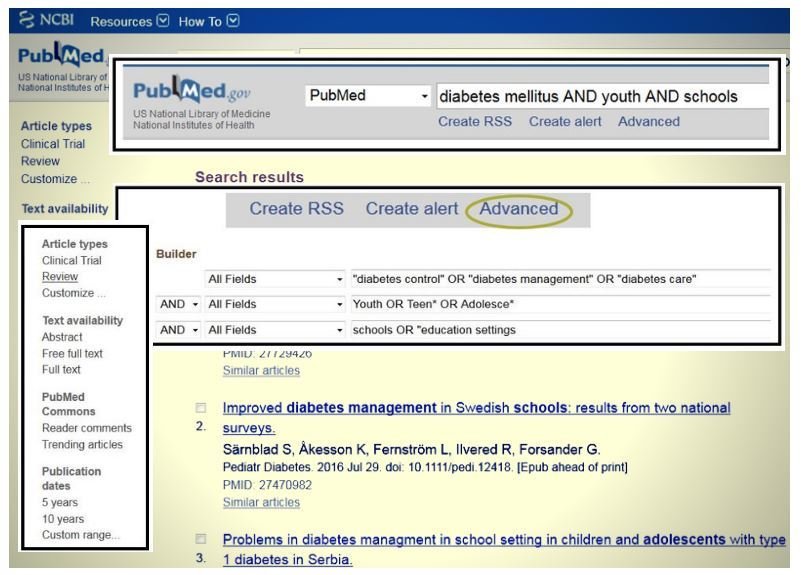
Basic Search
Advanced Search
Limiters
Finding Articles
When you find possible articles of interest, look at terms associated with that article to consider in future searches. Some databases will also have links to related/similar articles, or other publications by same authors that will lead you to further sources.
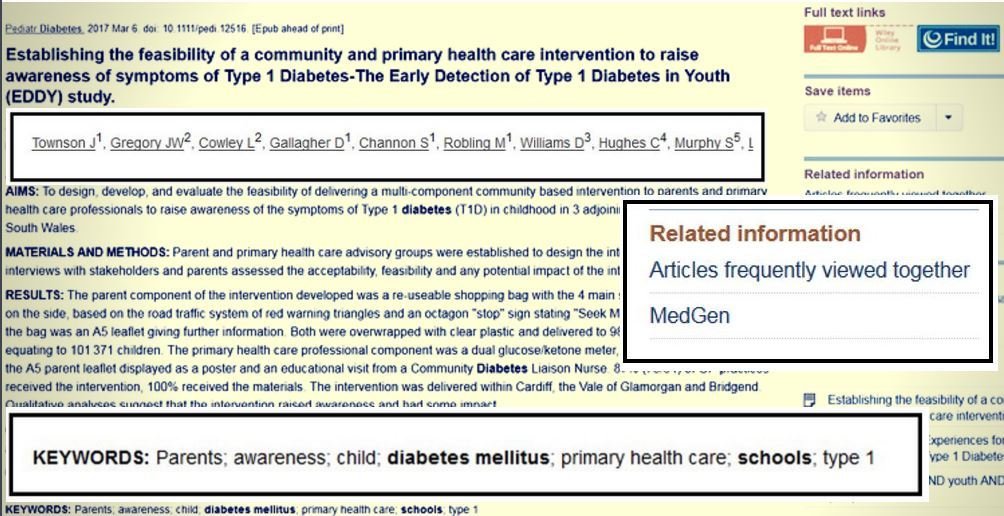
Author's
Publications
Terms to Consider
Related Articles
Research Tip: Explore more terms to search with by conducting a subject headings search in PubMed that would be MeSH search.
Finding Articles
Databases index content so one can find sources by conducting searches; however, it does not guarantee access to the actual content as they might not own the rights to the publication the article is published in.
Look for the Full Text links or PDFs. If Full Text is not available click on the "Find It" link, that will verify if HPU has access to a specific article via another database or in print.
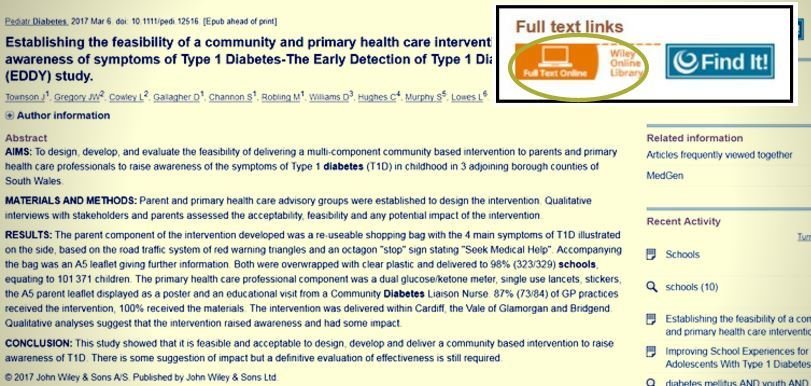
Finding Articles
In the case that the database you are searching does not have a Full Text option and the Find It link states Full Text cannot be found. You can request the article via our Inter-library Loan program (ILL).
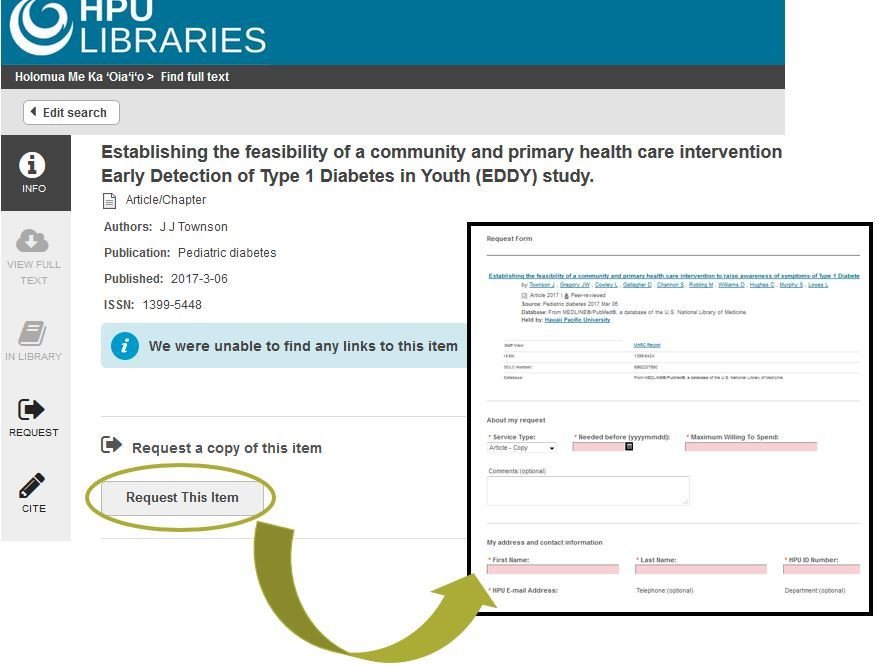
ILL will request the
article from other
institutions and
when received they
will email it to you.
This process takes
between 3 to 8
working days.
Identifying More Sources
Scholarly articles build on what has been discussed within a discipline on a particular topic. That is why it's recommended to look at the sources referenced in articles as it is a continuation of the scholarly conversation.
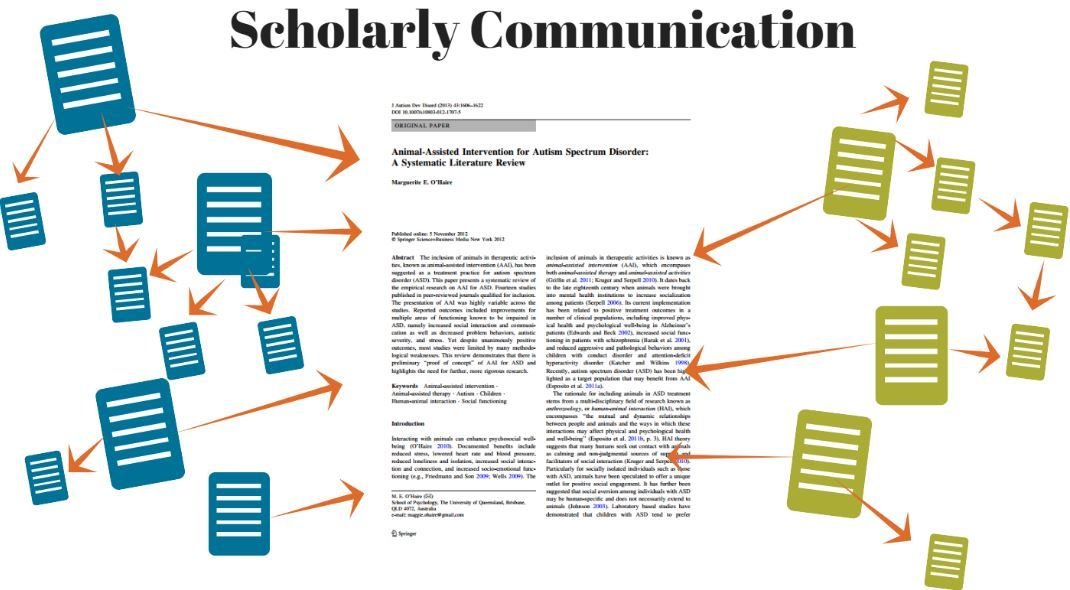
Research Tip: Also check out articles or sources that have used the article you are reading as a reference.
Identifying More Sources
To access specific articles in references, search for articles in the Periodicals List. You must have at least the article title and publication title or the DOI.
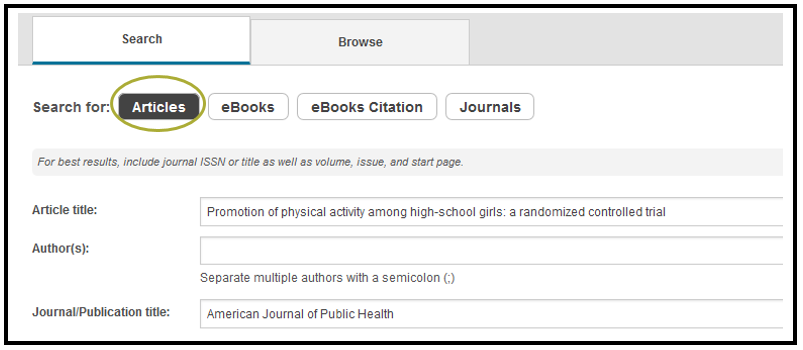
If HPU subscribes to the publication you will see options to access the Full Text.

Identifying More Sources
Another option is to do a Google Scholar @ HPU search to see if the specific article is available via an HPU subscription.
If there is access you will see PDF or Find IT link on the right side, click on those links to access articles. Do not click on the article title as that will lead you to publishers site.
Note: Google Scholar only indexes "scholarly publications" so there are no popular or trade magazines articles.

Organizing Your Sources
As you start reading and analyzing the content of the sources you found, start creating notes and organizing your documents so you can easily manage all the research you accumulated.
Save the citation information of sources and make notes of specific pages where you find valuable passages.
Numerous databases provide citation information, however, these usually have punctuation mistakes so make sure you check with the proper citation style manual.

Organizing Your Sources
There is free citation management software that will allow you to save citation information, make notes and create references for your research projects. Three options:
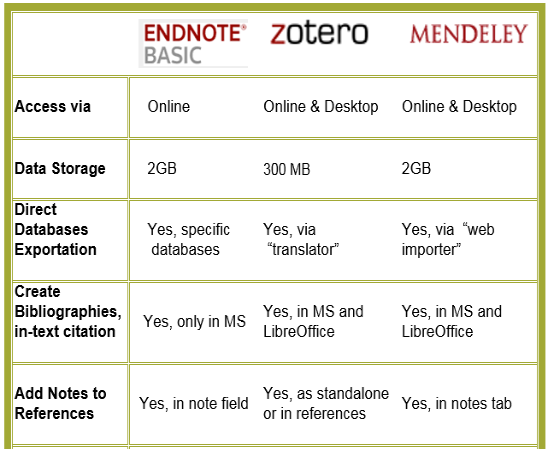
Organizing Your Sources
EndNote Basic: Direct citation exportation from any EBSCO database and it is widely used by Public Health faculty.
Check out the EndNote Guide

"There is a learning curve at the beginning when using any citation management tool, but at the end it is worth it, for it will safe you time and frustration".
Need Help with your Research?

Contact me at etorres@hpu.edu
PH 6300
By Elizabeth Torres
PH 6300
Research Plan
- 1,077



